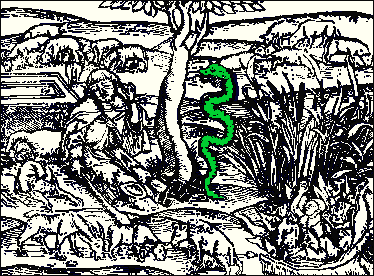

Whether or no Virgil wrote them, however, they remain valuable for students of the poet's reception. The Appendix was usually included in early printed editions of the poet's works, frequently accompanied by the commentaries of Iodocus Badius Ascensius and Domitius Calderinus. It was in this form that authors like Tasso and Spenser probably encountered Virgil, and a judicious estimate of Virgil's influence on these poets cannot but take the Appendix into account.
These are not immortal poems, but they do deserve a wider audience than they have had in this century. Joseph J. Mooney's translation, presented here, has many shortcomings, but it is (to my knowledge) the only English translation in existence, and what is more, the copyright has lapsed, which means that I can now distribute it legally on the Internet.
Beware scannos!
Note also that the renaissance Appendix was much larger than its modern counterpart. In addition to the Catalepton, Priapeia, Epigrammata, Dirae, Ciris, Culex, Aetna, and Copa mentioned by Aelius Donatus and Servius, Renaissance readers also had access to the Rosae, Est et non, Vir bonus, Elegia in Maecenatis obitu, Hortulus, De vino et Venere, De livore, De cantu Sirenarum, De die natali, De fortuna, De Orpheo, De se ipso, De aetatibus animalium, De ludo, De aerumnis Herculis, De Musarum inventis, De speculo, Mira Vergilii versus experientia, Mira Vergilii experientia, De quattuor temporibus anni, De ortu solis, De Herculis laboribus, De littera Y, and De signis caelestibus.
If you are interested in discussing Virgil with others, consider joining the Mantovano email discussion group. The group exists to discuss the poet, his work, and his influence, and welcomes amateurs as well as professional scholars.